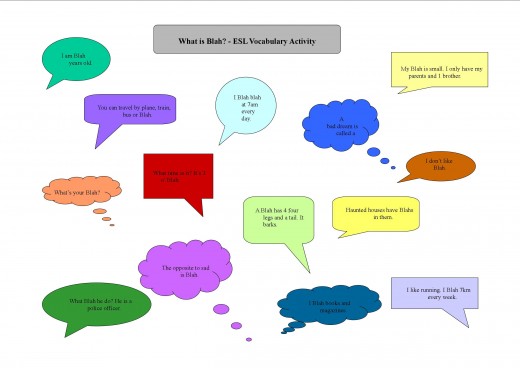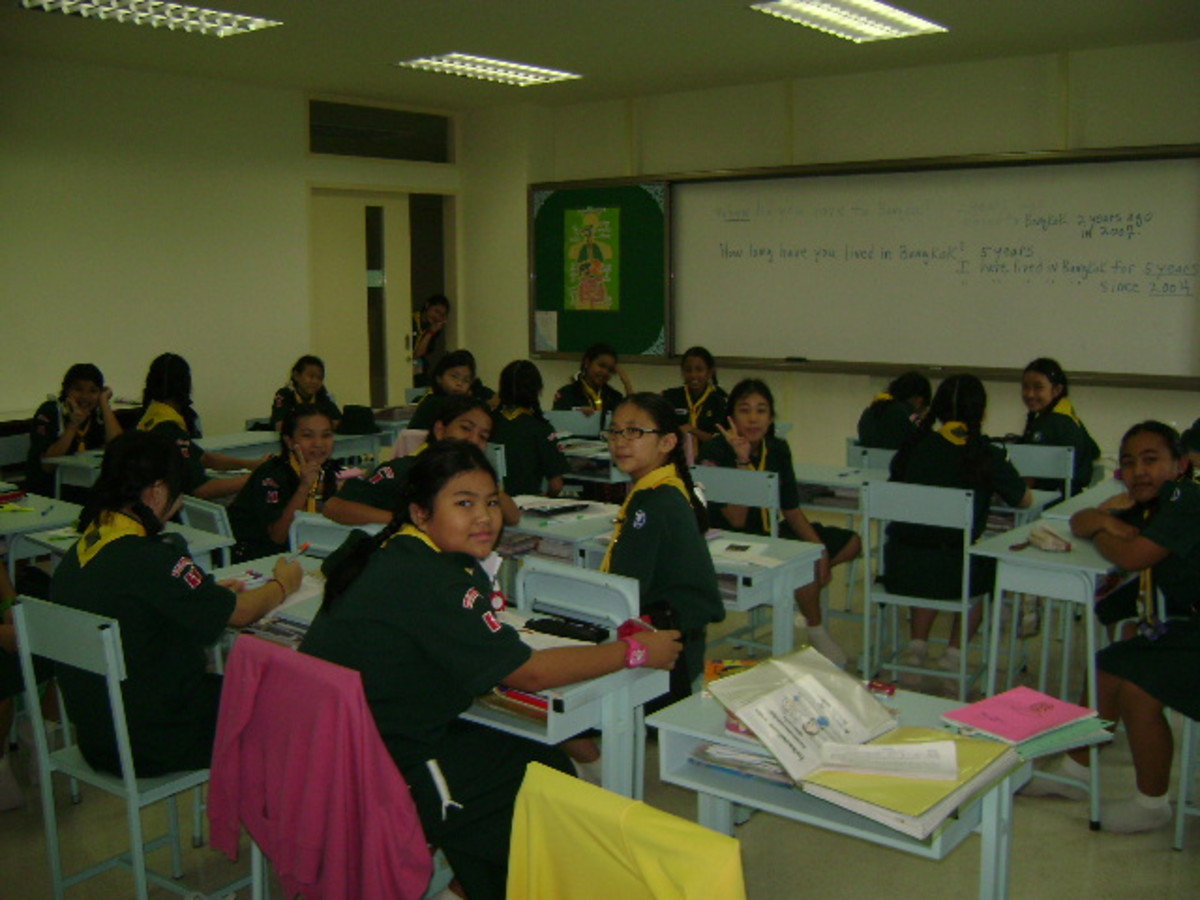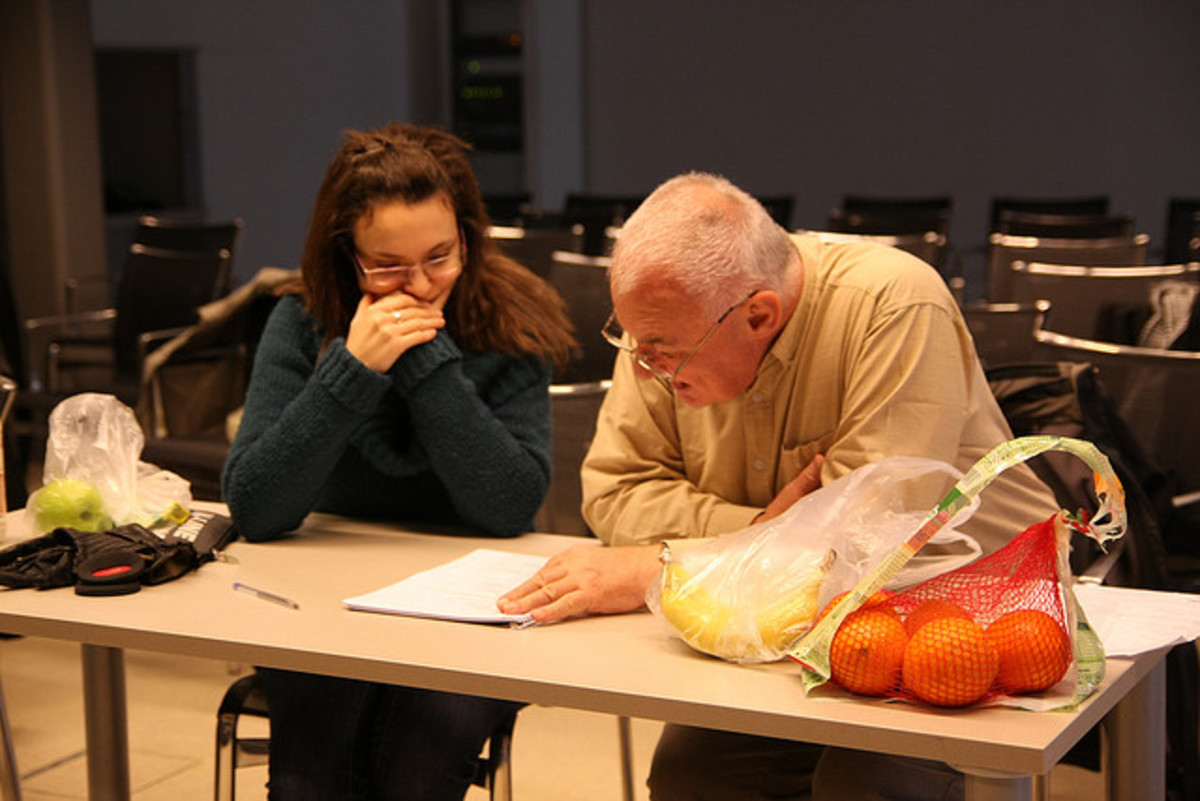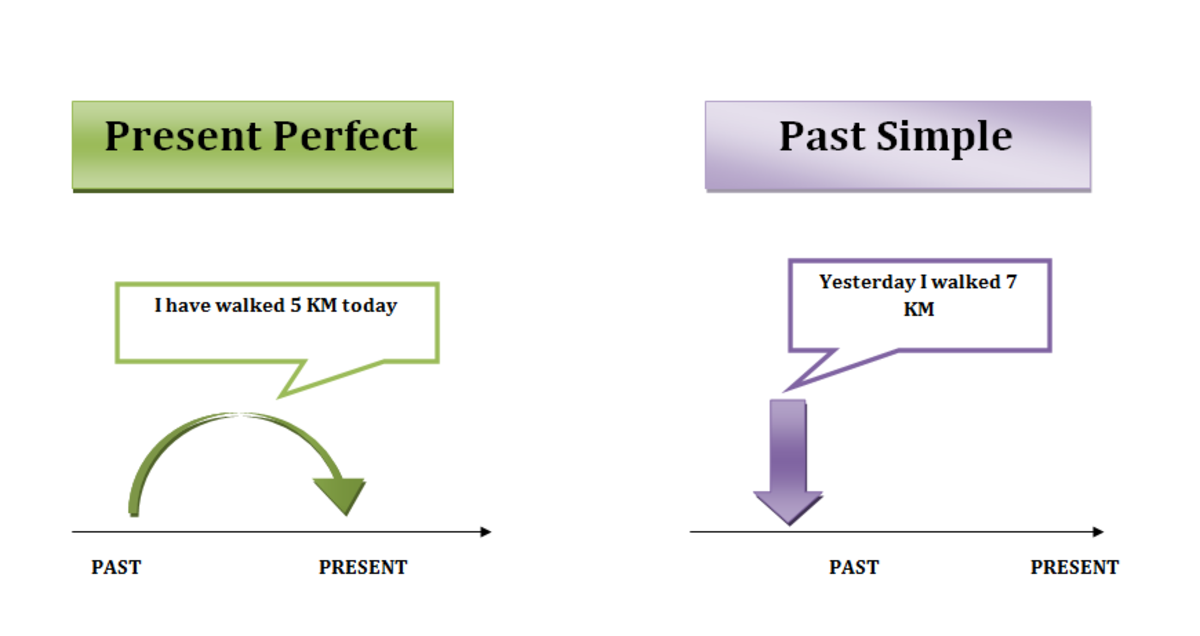Teaching English – 3 Great Vocabulary Activities

Below are 3 great vocabulary activities. They are suitable for different levels and they are very handy fillers, motivational exercises or just for a bit of fun.
What is Blah?
This is a nice activity for Elementary levels. Write these sentences on the board and have the students write down what they think ‘Blah’ stands for.
- What’s your Blah? My Blah is Tom.
- I am learning Blah at school.
- I am Blah years old.
- There are 12 Blahs in a year.
- Two, Four, Six, Blah.
- 2 ears, 2 eyes, 1 mouth, 1Blah.
- Yesterday I Blahed to the cinema.
- I buy fruit and vegetables at the Blah.
- I don’t like Blah.
- I Blah books and magazines.
- What time is it? It’s 3 o’ Blah.
- Haunted houses have Blahs in them.
- What Blah he do? He is a police officer.
- A bad dream is called a Blah.
- I Blah blah at 7am every day.
- I like running. I Blah 7km every week.
- A Blah has 4 four legs and a tail. It barks.
- The opposite to sad is Blah.
- You can travel by plane, train, bus or Blah.
- My Blah is small. I only have my parents and 1 brother.
Answer Key:
1 – Name, 2 - Any school subject, 3 – Age, 4 – Months, 5 – Eight, 6- Nose, 7 – Went, 8 – Shop/supermarket/grocer’s, 9 - Any answer acceptable, 10 – Read, 11 - Clock, 12 – Ghosts/spirits, 13 – Does, 14 – Nightmare, 15 – Get up, 16 – Run, 17 – Dog, 18 – Happy, 19 – Car, 20 – Family.

Cultural Trivia for ESL Students
Do you need to kill 15 or 20 minutes in your class? Are your students interested in other countries? Why not try this cultural trivia activity then?
It’s really simple to do, simply cut up the squares and give them to the students. Every student should have a question and an answer. A student will pose the question and another student will have to decide whether they have the correct answer or not. The pieces of information are really interesting and are likely to lead into a longer discussion about countries and their cultures. . Suitable for Intermediate and up. Enjoy!
Cultural Trivia Questions and Answers
1. In the United Kingdom and the Republic of Ireland, without breaking the law you must have something to watch T.V. What?
| A. You must pay for a T.V. licence every year. In 2013 the cost for a colour T.V. in the UK was £145 and in Ireland €160.
|
2. You want to know about the longest movie ever made?
| B. One of the longest films ever made was called Matrjoschka. It was made by German artist Karin Hoerler in 2006 and takes 95 hours to watch.
|
3. If you want someone to approach you in Peru, what should you do?
| C. You shouldn’t use your index finger using the ‘come here’ gesture as it is rude. Instead you should place your palm downwards and sweep your fingers towards you.
|
4. Soccer, the world’s most popular game, originated in which country?
| D. Between the 2nd and 3rd century BC there is some evidence that a game called "Tsu Chu" was played in China. The players kicked a ball made from leather and stuffed with fur, no hands allowed.
|
5. How does a Muslim man divorce his wife?
| E. He says these words three times: “I divorce you, I divorce you, I divorce you.”
|
6. Using someone as a scapegoat means they take the blame for something they did not do. Where did this term originate from?
| F. An ancient Jewish religious ceremony involved a priest placing his hands on a goat, confessing the sins of the people and sacrificing the goat.
|
7. How to tell a woman’s age in Ancient Greece?
| G. In ancient Greece the age of a woman was counted from the first day of her wedding.
|
8. How do Tibetans greet their house guests?
| H. When guests arrive at your house you greet them by sticking your tongue at them.
|
9. What is the most common name in the world?
| I. The most common name in the world is Chinese. The name ‘Chang’ is used by approximately 104 million people and rising.
|
10. Which country in the Caribbean would have trouble if they were invaded by another country?
| J. Costa Rica, because they haven’t had a standing army since 1948.
|
11. In which country is it illegal to chew gum in public?
| K. Singapore. In 1992 it was banned because vandals stuck chewing gum to the door sensors of the metro trains, thus preventing them from opening properly. Nowadays you can buy medicinal gum from a pharmacy, but the pharmacists’ have to take down your name.
|
12. Why might you offend someone in certain countries by handing them something with your left hand?
| L. In many cultures eating and greeting people is reserved for the right hand. Because there is no toilet paper, the left hand is used to clean up after a visit to the bathroom.
|
13. In the Middle East and India what is a common sight?
| M. It is quite normal to see two men holding hands. It is considered a display of friendship.
|
14. What should you do before entering someone’s house in many Asian countries?
| N. You should take off your shoes and place them neatly outside the door or on a shoe rack. Feet are considered the lowest and dirtiest part of a person and it is impolite not to do so. You should not point with your feet either.
|
15. In Western culture it is quite normal to pat a child n the head. In Asian cultures it is not. Why?
| O. The spirit of a person is considered to reside in the head and it is a major insult to touch it.
|
Answers: 1A, 2B, 3C, 4D, 5E, 6F, 7G, 8H, 9I, 10J, 11K, 12L, 13M, 14N, 15O.

Vocabulary Quest
This is a great vocabulary activity for all levels. It also works well as an icebreaker or a filler exercise.
- Are hot.
- Irregular comparative adjectives.
- Make you sad
- You do before going out for a night.
- You hate doing.
- People ask you regularly.
- You put on your head.
- Instruments you like or hate.
- Famous people you admire.
- You do every day.
- Are cold.
- You don’t do often.
- Women have in their handbags.
- Children like to do.
- That can make you look older.
- You can’t live without.
- Food you don’t like.
- Foods that are red.
- Words that are related to health.
Name 3 things that:
- Are flammable
- You find in the dashboard of a car.
- Are made of plastic.
- That smell badly.
- Negative adjectives.
- Make you tired.
- Men wear.
- Weather conditions.
- Phrasal verbs.
- Hot drinks.
- Types of jewellery.
- Words that are related to business.
- Feelings you have while waiting in a hospital.
- You love doing.
- Famous people that annoy you.
- Body parts that you have 2 of.
- Sports that use balls.
Other Teaching Hubs by the Author
Teaching English – Fun Puzzles for ESL Kids
Two great puzzles for ESL students. They focus on reading comprehension, vocabulary and problem solving. Suitable for Pre-intermediate and Upper intermediate. Fun to do!
Fun Activities for ESL/EFL Students
Have fun in the classroom, with no need to spend hours preparing.
ESL/EFL Quiz - New Words and Phrases
The Oxford Dictionaries Online add about 1000 news words every year. Want to test your students' knowledge of these new words and phrases?
Fruit and Nuts Vocabulary
© 2013 Muttface








